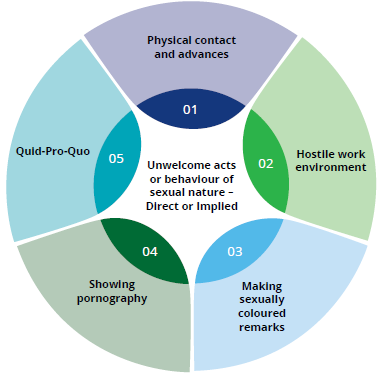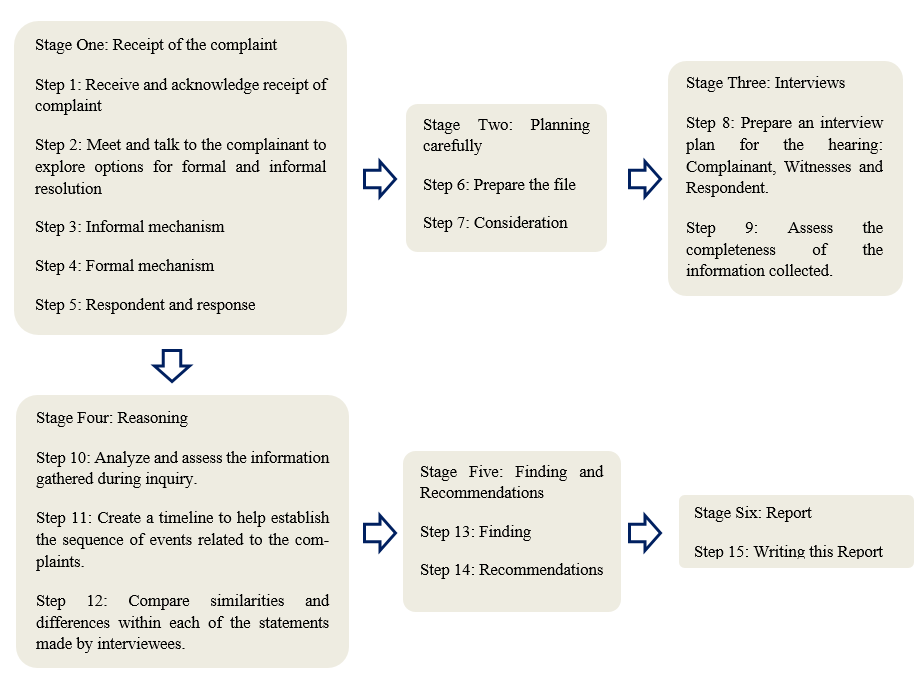INTRODUCTION
With the increase in the number of women joining the workforce, the need to ensure safe and secure environment becomes imperative for the organizations. The POSH Act 2013 has significantly impacted workplaces in India, providing victims of sexual harassment with the legal protection they need. The Act not only puts in place necessary mechanisms for safety and security of working women, but also ensures an unbiased and gender-neutral workplace.
The POSH Act is a legislation enacted by the Government of India in 2013 to address the issue of sexual harassment faced by women in the workplace. The Act aims to create a safe and conducive work environment for women and provide protection against sexual harassment. The POSH Act defines sexual harassment to include unwelcome acts such as physical contact and sexual advances, a demand or request for sexual favors, making sexually colored remarks, showing pornography, and any other unwelcome physical, verbal, or non-verbal conduct of a sexual nature.

BACKGROUND
The Parliament took 16 years to implement the directions issued by the Supreme Court of India in 1997, in the landmark case of Visakha vs. State of Rajasthan ("Visakha Guidelines") to enact a law for the prevention of sexual harassment of women at the workplace. The enactment of the Sexual Harassment of Women at Workplace (Prevention, Prohibition and Redressal) Act, 2013 ("Act") and the Sexual Harassment of Women at Workplace (Prevention, Prohibition and Redressal) Rules, 2013 ("Rules") was very late, but better so than never. It provided with the basic definition of sexual harassment of women at workplace and issued guidelines to deal with it.

KEY PROVISION
- Prevention and Prohibition: The Act places a legal obligation on employers to prevent and prohibit sexual harassment in the workplace.
- Formulation of POSH Policy: POSH Policy formulation, in accordance with the Act, is the foremost step an organization/employer must take towards being compliant under the Act. The policy so formed must explicitly cover the objective and the purpose in clear and readily understandable terms for the employees without any scope of ambiguity, to the extent possible. The Employer is obligated to ensure that all the employees/interns or any other member, whether temporary or permanent, have access to the POSH Policy at any given point of time. For visitors, the organization may provide an easy access to the policy on demand.
- Internal Complaints Committee (ICC): Under the Sexual Harassment of Women at Workplace (Prevention, Prohibition and Redressal) Act, 2013 ("the Prevention of Sexual Harassment Act" or "the POSH Act"), it is compulsory for any organization with 10 or more
Employees to set up an Internal Complaints Committee (hereinafter referred as, "ICC") for addressing complaints of sexual misconduct. The ICC should be located at all workplaces. Where the offices or administrative units of the workplace are located at different places or divisional or sub-divisional level, the ICC shall be located at all administrative units or offices. The Presiding Officer and every member of the ICC shall hold office for a period not exceeding three years from the date of nomination as a member.
As per Section 19(b) of the POSH Act, the employer is compelled to display notices at any conspicuous place in the workplace.
The Notice must include the following details:
- Names of the existing IC Members;
- Contact Details of the IC Members (individual as well as comprehensive email id, phone numbers,
- Designation, etc.
- Penalties and repercussions for committing an act of sexual harassment;
- Provisions of the POSH Act;
- Procedures for filing the complaint;
- List of Prohibited Behavior(s)

Complaint Mechanism
1. Compliant
- 6 copies of the complaint must be filed with the ICC;
- Must be filed within 3 months from the date of the incident;
- In case the aggrieved is incapacitated – Relative/Friend/Co-worker can file complaint;
- ICC will forward copy of compliant received to respondent within 7 days;
- Respondent to reply to ICC within 10 days.
2. Conciliation
- opt for conciliation before inquiry begins, to settle the matter, but no monetary payments or material benefits can be demanded;
- No inquiry, if conciliation is arrived.
3. Inquiry
- ICC to complete inquiry within 90 days of receipt of the complaint;
- ICC shall submit its report to management within 10 days of completion of inquiry;
- Employer to implement action recommended by ICC in its report within 60 days.
4. Appeal & Confidentiality
- Section 18 of the POSH Act states that any person aggrieved from the recommendations or non-implementation of recommendations of the IC may prefer an appeal to the court or tribunal in accordance with the provisions of services rules applicable to the said person. Where there are no service rules, then
- in any other law being in force, under rule 11 of the POSH Rules which specify that any aggrieved person from the recommendations of the ICC may prefer an appeal to the appellate authority notified under clause (a) of section 2 of the Industrial Tribunal Employment (Standing Orders) Act, 1946. within 90 days;
- Also, in case of non-implementation of ICC's recommendation by employer;
- Contents of the complaint, identity of woman, respondent, witnesses and any information relating to conciliation or inquiry proceedings should not be published, communicated or made known to the public (including other employees), press or media.
Aggrieved Woman as per the Act
The Act recognizes the right of every woman to a safe and secure workplace environment irrespective of her age or employment/work status. Hence, the right of all women working or visiting any workplace whether in the capacity of regular, temporary, adhoc, or daily wages basis is protected under the Act.

Workplace as per the Act
A workplace is defined as "any place visited by the employee arising out of or during the course of employment, including transportation provided by the employer for undertaking such a journey." As per this definition, a workplace covers both the organized and un-organized sectors.
It also includes all workplaces whether owned by Indian or foreign company having a place of work in India. As per the Act, workplace includes:

Power of Internal Complaints Committee or the Local Complaints Committee
For the purpose of making an inquiry, the ICC or the LCC, as the case may be, shall have the same powers as are vested in a Civil Court under the Code of Civil Procedure, 1908.









 CAclubindia
CAclubindia
